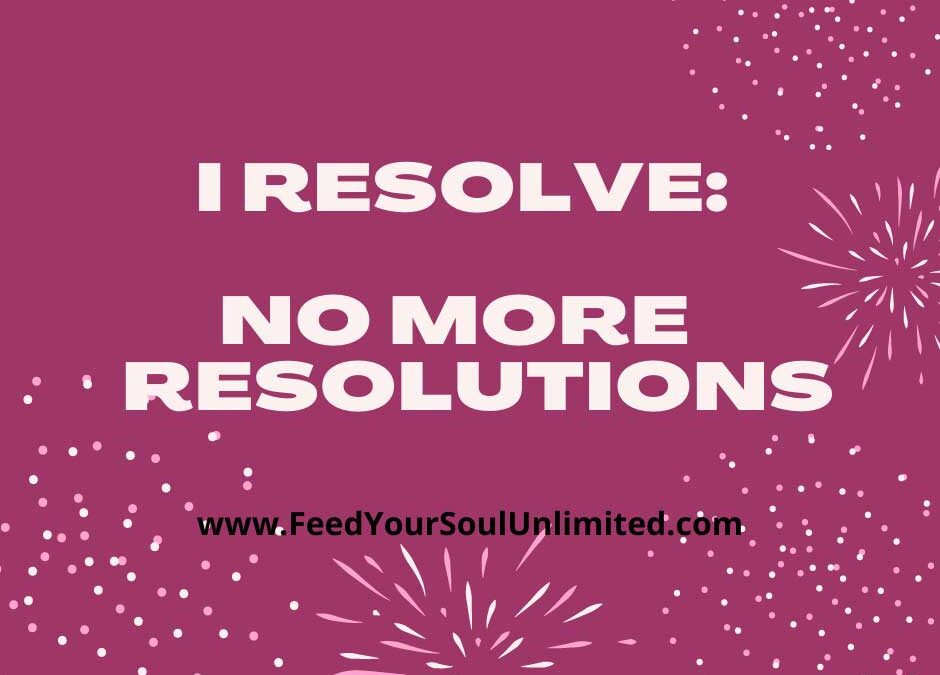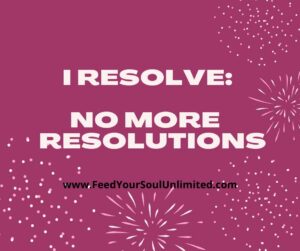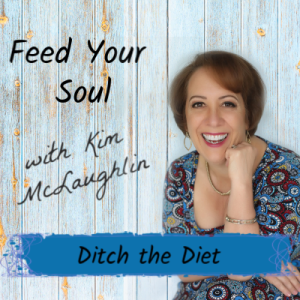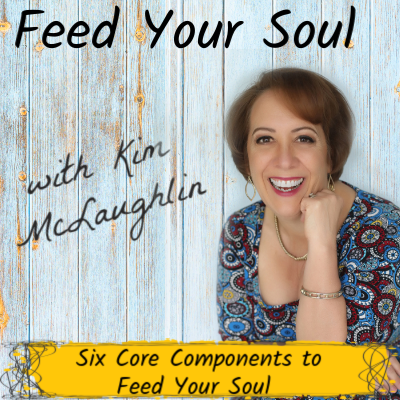
by KimMcLaughlin | Aug 4, 2019 | Podcast




This is a portion of the transcript
of from Episode #3 from my Podcast: Feed Your Soul with Kim.
It happens twice a year at the New Years and
just prior to the summer. At New Years the focus is on losing weight and
getting to your goal weight during the year, because they think you cannot be
ok with your current size. The sooner the better. In the summer the
advertisements focuses on having a bikini body, wearing short shorts, and tank
tops. Along with these advertisements about swimsuits, there’s the underlying
message that you need to reach a certain number on the scale. That you need to
follow a certain diet in order to be that size in order to be “bikini ready.”
What they are telling you through their
statements, pictures and imagery is:
- Happy people are thin people.
- Sad people are overweight people
This creates a diet mindset that we have all
bought into.
How is this a diet mindset?
- Thoughts we need to be a certain size.
- Societal lack of acceptance of our bodies.
- This is a scale driven mindset where we are only satisfied with a certain number on the scale.
We have bought into this mindset, because we were indoctrinated into it. Diets failed you. You didn’t fail.
It’s the strategy of the 2 billion dollar
weight loss industry, which includes books, programs, diet food, diet drugs and
weight loss surgery. They do this to make money! If diets worked over the long
term then we would not need to keep talking about it. The failure rate of diets
is 80-90% long term. That is the failure rate! So, that means the success rate
long term is 10-20%.
There are many reasons why diets don’t work.
Diets Focus on Deprivation
You are required (in order to be successful)
to eat only certain foods on their list in whatever combinations they tell you
and don’t eat any other food. There are forbidden foods that you just aren’t
supposed to eat. We know that when we are told there are forbidden foods, we
want them even more. You feel like you can’t control yourself.
It is the deprivation that sets us up to what we can’t have, which then sets us up for binging, guilt and more dieting.
Diets Make Us Focus on Food All the Time
When are on a diet we are told to look at food 24 hours a day. This makes us think about food all of the time. When you think about it that much, you want it more. What we really want to do is to put food in its proper place as nourishment and look at it as we’re hungry and intuitively determine what we really need.
Diets Lead Us to Think of Food in Terms of Good vs. Bad
I think there is no Good food and no Bad food.
Food is food. There is food that gives us energy and food that takes energy
away. There is food that makes our body feel good and there is food that
doesn’t.
Truthfully, we tend to want what we think are
“bad” food, especially when emotions come up. It is so common to hear people state
they ate “bad’ food and now they need some kind of punishment (generally
exercise or a diet). When we feel upset we generally tend to go towards foods
many people would consider “bad”: sweet food, salty food, fatty food, etc. Good
food, on the other hand is generally low in fat, low in sugar, and sounds
boring and is diet-related.
In Order to “Ditch the Diet”, You Need a Plan
Here are three strategies to help end the dieting mindset.
- I suggest you ask yourself this question and journal, “What is dieting to me?” The answer is really individual. For me, dieting is constant hunger, deprivation, and foods are off limits. This is the type of deprivation that leads to rebellion, which leads to overeating at some point. Diets can be the surprise is healthy eating. Ask yourself, do I feel deprived? Do I feel restricted? Does this eating plan lead me to think constantly about food? This is that diet- binge- guilt cycle that comes when we engage in more and more dieting. Let go of the guilt about eating, your weight and the scale.
- Are you focused on your weight? Weighing yourself or multiple times a day really leads you into that diet mindset. I recommend you let go of the focus on your weight and let go of the scale. Connect back to your body and self-love.
- Eat intuitively connect with your body and mindfulness. Focus on physical hunger: this real hunger is the hunger we want to base our eating on.
I encourage you to look back on your history of dieting and notice the patterns. How does it feel to see your history of dieting and how diets have failed you? This doable is a start in the direction of peace with food.
Kim
McLaughlin, MA is a Counselor, Speaker, and Inspirational Coach
who specializes in working with people who suffer from binge
eating and emotional eating. She is a Certified Intuitive Eating
Counselor. She is the author of the newly released book Feed Your Soul Nourish Your Life! A Six
Step System to Peace with Food and the Amazon #1 Best
Selling book Discovery Your Inspiration.
She has
recently launched her podcast Feed Your Soul with Kim. You can
find it on all podcast platforms.
Kim
McLaughlin has been identified as writing one of the Top 50 Blogs about Emotional
Eating by the
Institute on Emotional Eating. Sign up for her free Special Report: Top
Strategies to End Emotional Eating here or visit her website at www.FeedYourSoulUnlimited.com.

by KimMcLaughlin | Jul 20, 2019 | Podcast




This is a transcript of from Episode #1 from my Podcast: Feed Your Soul with Kim.
In my work as a Psychotherapist and in my Coaching business, I find people are using food for comfort, for recreation, and for ways to connect. The vicious cycle of over-”dieting” and constant “dieting” has really made them feel horrible about themselves. I know, I used to be there myself. When I began to look at the root-cause of my own overeating, I started to notice a number of things and I came up with a different take on health and wellness. I truly believe the guiding principle in understanding health and wellness centers around living a life where each person feels wonderful, fulfilled, and energized in all areas of their life: Physical, Emotional, Thoughts, Lifestyle, Mindfulness and Self-Love. By focusing people on creating more balance and peace in their lives as a whole, the food overeating and binge eating are replaced with healthier alternatives in a more natural, stress-free way. These principles have become my Six Core Components to Feed Your Soul and ultimately they lead to making peace with food.
Balance
It all starts with “balance”. When I think about what’s going on in somebody’s life, I think about the Six Core Components as guideposts to determine whether they’re balanced. So part of this process is asking ourselves, “Am I balanced in my life? Are things balancing out?” in each of the six areas. As I go over these six core principles you can see when you’re out of balance, you’ll be able to see which areas aren’t working for you to feel wonderful, fulfilled, and energized.
What I find fascinating is with everybody I’ve spoken with and worked with on these principles, is that they are never out of balance in just one of the core concepts. They’re never out of balance in just one area, it’s often two, three, four, five, and many times it’s all six areas. People talk to me a lot about wanting to feel “in control” over food or feel like they got it handled, and I think that food issues show up as a way to tell us when we’re out of balance in our lives. That’s the “gift” in food telling us when we’re out of balance.
The Six Core Components & Getting Started
As you read through the Six Core Components below, start imagining how they are fitting into your life or how they’re out of balance in your life and that will give you an idea about what might mean need some work.
Core Component # 1 Physical
Most people with food issues believe when I say “physical” we are only talking about the food we’re putting into our bodies, and I’m not.
In terms of the physical our hormones can affect the balance. When our hormones are out of balance, we feel out of balance in the physical and I think we don’t often consider that, especially for women. In every stage of women’s lives there are hormones that come into play. As young girls, hormones change as they’re entering into menstruation. Then they enter that whole young adult time when they’re getting that balance around having a monthly menstrual cycle. What does that feel like? How does food affect that? Does your body physically feel? All of that goes on and then some women enter the time of pregnancy and being pregnant, either having full-term pregnancy or having something happen that ends the pregnancy, either way, being pregnant affects our hormones. Post-pregnancy affects your hormones as well as the time when we enter perimenopause, which nutritionists and medical people say happens around 35. So, around 35 you start then having another change, the perimenopause period, which brings its own challenges. Finally, we go through menopause and post-menopause. Do you see there is this flow throughout women’s lives that is really affected by hormones? What I want you to notice is that physical has to do with food; it has to do with hormones; it has to do with how you metabolize food; it has to do with how your body is physically working. All of that plays into the physical. We will talk A LOT more about the Physical Component in other podcasts- keep listening.
Core Component #2: Emotions
The second component is Emotions. How do emotions affect how we come to the table? How we interact with food sometimes is dictated by our emotions. Emotions make us want to have food, or we THINK it makes us want to have food. Then, food makes us FEEL a certain way. Think of it like this: you have emotions and that makes you want to have a certain food, but sometimes when we eat a certain food, it leads to other emotions that lead us to eat and to overeat. The types of emotions that affect eating the most tend to be anger, sadness, happiness, boredom, loneliness, and anxiety. Those are some of the major emotions that people talk with me about.
When we overeat because of emotions, we’re not coming from a place of really noticing our body. Am I hungry? Am I full? Those questions are from the physical, noticing am I hungry, am I full what is my body really need. When we’re in the emotions how our body feels doesn’t play a part in our decision about what we eat. I find that the more we become connected with our body connected with what’s going on inside physically the more we can have a feeling of empowerment when we have the feelings coming on when the feelings come on it can often feel overwhelming and feel as if we have no control so when we’re having feelings we think we have no control. We will overeat and won’t pay any attention to what’s going on inside. When we eat for emotional reasons it leads to more emotions because then we can tend to feel angry, feel upset, feel overwhelmed, feel sad, because we’ve eaten. When we know that our body didn’t really need what we’re eating and that leads to a big struggle. Can you see when you eat because of emotions and then once you eat you have emotions, because you’re not happy with what you’ve. Emotions play a big part in eating we will talk about that in depth in these podcasts, I promise you.
Core Component #3 Mental
The third component is the mental or the cognitive. The thoughts we have that lead us to overeat. I think about that food I think that I can’t stand myself if I don’t eat. So we eat, because our thoughts are out of balance I used to do that a lot where I would think about the certain food that was in my house and it finally got to the point where I just said to heck with it, I have to eat it because I wanted the thoughts to go away. I wanted the thoughts of that food to leave and at that point of time the only idea I could come up with that would help would be to eat it. I thought if I eat the food the thoughts would go away. Well they did go away immediately the thoughts went away, but then what came on is the feelings of anger at myself that I did that and the condemning of myself and making myself wrong and bad and feeling horrible about myself really leading to lots of feelings of self-hatred because I ate this food only because of the thoughts. We will work a lot on the thoughts. The thoughts play its part in food, but the thoughts play a part in all of our lives. Everybody I talked to no matter if they have food issues or not their thoughts can be out of control. They think their thoughts are real and that they should just act upon them because they have no power over them. I promise you in these podcasts we will talk about thoughts and we will talk about what to do about them specifically. I will give you clues, tools, and techniques doable that you can do immediately to really affect a change on your thoughts.
Core Component #4 Lifestyle
The lifestyle concept encompasses your family, your friends your work, exercise, education, vacations, and holidays. Lifestyle is a huge component we’ll be talking about those a lot most especially when we come near to different holidays. I am a strong proponent of having ideas and plans and really talking through how the holidays and being aware of how they show up in overeating. I have lots of things you can do in regards to the holidays, so I promise you as we come into holidays, as we come into vacation time, I will have specific podcasts focused on those areas.
Core Component #5 Mindfulness
The fifth area is mindfulness, which is so important to assist you to be centered and connected inside of yourself. Some people will really hear when I talked about it will hear more of a spiritual idea about it. It doesn’t have to be about religion it doesn’t have to be about God. If that fits for you good, but it doesn’t have to. It’s about how you feel connected with your inner self and with their higher sense of purpose. I know that people can get out of balance in their connection with their inner self and it shows up in food and overeating, but it can also show up in feeling dissatisfied in your life and feeling unhappy. Being more connected mindfully is one a strategy and a goal that I want to help you with. I want to see you more mindful more connected to yourself and to that guidance that will help you all along the way. It’s one of the most important things you can do is have that inner connection to that greater purpose but also your inner knowing.
Core Component #6 Self-Love
The sixth area is really the most important area and it’s self-love. This area embodies self-love, self-worth, and self-esteem; it’s all of those components together. What I find is that consistently people don’t feel a sense of self love. What I find is more often than not, there’s a sense of self-loathing and self-hatred. The antidote to that is self-love, but we don’t know how to find it we’ve lost our way a lot of times about how do we feel that we’re okay. What people tell me is that they think that if they focus on self-love or self-esteem or self-worth that they’re being selfish. I say yeah bring it on because it’s not selfish in a negative way it’s self-full. It’s being full of yourself. The more you are full of yourself and who you are and who you bring to the table and who you’re meant to be, the more positive you feel the more peaceful you feel.
I promise you the more food will be in balance for you, the more you practice self-love. Sometimes we’ve been so far away from that feeling of self-love that we don’t know any more how to get to that spot. We don’t know how to get to that feeling of self-love. If you are up for more self-love, I’m your girl. I’ve got clues. I’ve got tips. I can help you get there and that’s another piece, big piece of what this podcast is about. We are going to focus on how are we all going to feel the sense of fullness within ourselves, that’s where self-love is critical. You can see I have a lot on my plate in regards to what I want to talk about in these podcasts. I want to give you all of this goodness.
I wanted to set you today in this first podcast to let you know what’s coming. What’s coming is a look at all of these core components. I have big plans for this podcast. If you want to feel empowered with food and your life, this is the place for you, because we will go over self-care tools and self-care techniques to get you moving forward. In order to get more support, I really recommend you go to the free Feed Your Soul Community Facebook page and ask to be added.
I appreciate all of you showing up today for the flagship first podcast and I want to leave you with an idea of looking at all of these six areas that we’ve gone over. Where do you feel in balance? Where do you feel out of balance in the six core components? If you are feeling out of balance than this is the place. Each week we will have a new topic to listen to. Thanks for join us.
Kim McLaughlin, MA is a Counselor, Speaker, and Inspirational Coach who specializes in working with people who suffer from binge eating and emotional eating. She is a Certified Intuitive Eating Counselor. She is the author of the newly released book Feed Your Soul Nourish Your Life! A Six Step System to Peace with Food and the Amazon #1 Best Selling book Discovery Your Inspiration.
She has recently launched her podcast Feed Your Soul with Kim. You can find it on all podcast platforms.
Kim McLaughlin has been identified as writing one of theTop 50 Blogs about Emotional Eatingby the Institute on Emotional Eating. Sign up for her free Special Report: Top Strategies to End Emotional Eatinghereor visit her website atwww.FeedYourSoulUnlimited.com.

 I have heard about meditating for an hour, getting up earlier, exercising first thing in the morning or drinking a concoction of warm water and hot spices. I have tried all of these and I do them for a while and do not stick with them. This had made me feel defeated that I could not have this pure morning routine.
I have heard about meditating for an hour, getting up earlier, exercising first thing in the morning or drinking a concoction of warm water and hot spices. I have tried all of these and I do them for a while and do not stick with them. This had made me feel defeated that I could not have this pure morning routine. 








